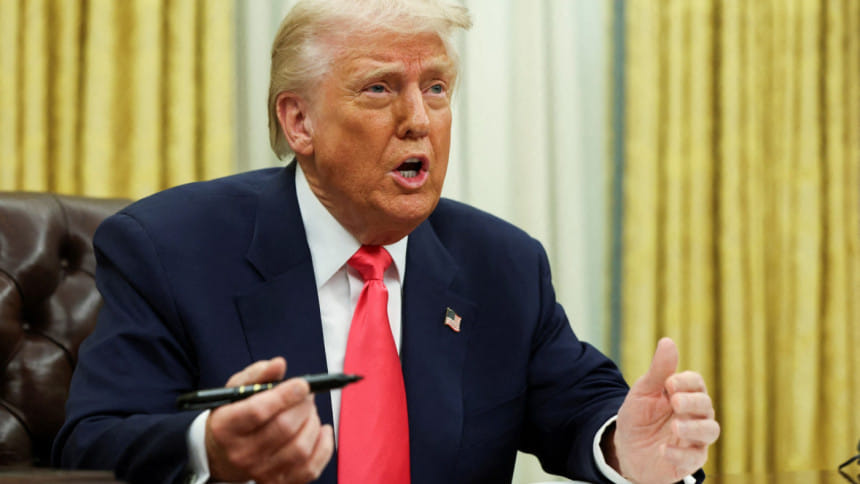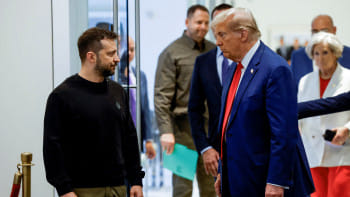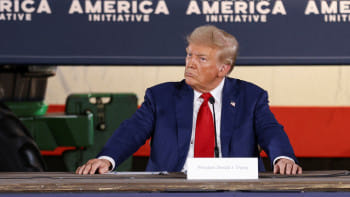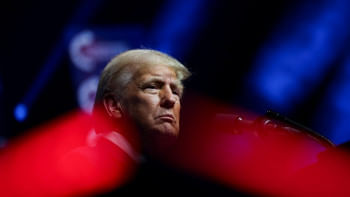Will Trump 2.0 end the liberal international order?

After the United States presidential election in 2024, many geopolitical analysts speculated that "Trump 2.0" would be more "assertive" and "protectionist" in his policies than the previous term. In reality, it has become more palpable nowadays as the second presidency of Donald Trump has given rise to concerns regarding the future of the liberal international order (LIO).
The LIO emerged in the mid-20th century as a response to the devastation of two world wars. A coalition of liberal democracies, led by the US, constructed a system intended to promote "peace, stability and prosperity" through idealist and liberal institutions such as the United Nations (UN), the World Trade Organization (WTO), the International Monetary Fund (IMF), and the North Atlantic Treaty Organization (NATO). The underlying logic of the LIO was that "international cooperation and peace," underpinned by democratic norms and economic integration, will prevent conflicts and wars. John Ikenberry described it as "The most ambitious and far-reaching effort to organise world politics in modern history."
With the demise of the Soviet Union in 1991, the US came forth as the sole superpower in the world political system through its LIO structure. Over the years, the US has integrated itself into the system and has been leading the world politico-economic environment as the "single most dominant power" with its military and economic might and by offering "public goods" and "free ride" to its allies and the developing countries through international institutions. However, the system has recently been exposed with significant vulnerabilities as Trump's "America First" doctrine directly challenged the US's traditional role as this order's principal architect and guarantor.
The retreat from multilateralism
Donald Trump's "America First" policy prioritises the "protectionist" and "national-interest-first policies" of the US over international collaboration, focusing on a transactional approach. This led to the US's withdrawal from pivotal global institutions and agreements, including the Paris Climate Agreement and the World Health Organization (WHO). It clearly signals a retreat from collective efforts to address pressing global issues. The executive order issued on January 20, 2025, officially withdraws the US from the WHO, resulting in the WHO's consideration of cutting part of its budget by $400 million. The US has historically been the largest financial contributor to WHO, and its withdrawal could have serious consequences for global health security and the US hegemony in the arena since the most-dominant hegemon should provide "public goods" to preserve its "preponderance of power." Critics argue that by retreating from a key pillar of global health governance, the Trump administration risks ceding influence to other global powers—Russia, China, and even members of the BRICS—thereby, fading America's ability, as the hegemon, to shape the international response to pandemics and other health emergencies.
Moreover, Trump has always been a sceptic of NATO and the UN, organisations he criticised as "outdated and financially burdensome." Trump recently criticised NATO allies for not meeting the current goal of spending two percent of their GDP on defence. Also, the US Secretary of State Marco Rubio, said, "Washington will no longer allow its NATO allies to rely on American taxpayer dollars to fund their defense budgets." In addition, Trump's close billionaire backer Elon Musk sanctioned a suggestion from X user @GuntherEagleman, who wrote: "It's time to leave NATO and the UN." Although Trump has not directly stated plans to exit NATO, he has consistently urged European nations to increase their defence spending, warning that the US should not shoulder the alliance's financial burden alone with providing "free ride"—what Randall Schweller previously termed as "No More Uncle Sugar."
Economic nationalism and trade war
Trump has given rise to confrontational trade measures by placing excessive tariffs at 25 percent against Mexican and Canadian goods (with the exception of a 10 percent rate on Canadian energy) while enforcing an additional 20 percent duty on Chinese imports in what he called a "deficit-correction effort" against economic imbalances with the countries. In this regard, Mexican President Claudia Sheinbaum quickly vowed retaliatory measures, pledging that Mexico would respond by targeting specific US imports. Canada, one of the closest allies of the US, found itself embroiled in an equally pugnacious exchange. Calling Trump's move a "dumb and nonsensical policy" and promising an "unequivocal" response, former Canadian Prime Minister Trudeau pointed out that Canada would retaliate by imposing tariffs on US goods. Beijing reacted similarly, imposing tariffs on a broad array of US farm exports. China expanded its export controls to include more US companies, exhibiting a stark message of readiness to engage in a prolonged economic confrontation. Signalling the development, China's embassy said, "If war is what the US wants, be it a tariff war, a trade war or any other type of war, we're ready to fight till the end."
However, while Trump justified his policies as "a way to strengthen the US economy," the decisions led to increased costs for American manufacturers reliant on imported materials, forcing businesses to raise prices or cut jobs. Retaliatory tariffs further reduced demand for American exports, which is weakening industries rather than protecting them. Ultimately, this grotesque policy signalled a new era of "protectionism" that challenges the longstanding LIO and forces both allies and adversaries alike to re-examine their strategic economic interests.
Undermining democratic alliances
Trump's continuous threat to withdraw from NATO, using his demand for everyone to pay as an "economic transaction," shows his clear contempt for European political leaders. Trusting relationships have fallen apart outside Europe as well. South Korea and Japan, which traditionally aligned with the US, have faced difficulties because of Trump's unpredictable diplomatic approaches. US allies in Asia remain in strategic uncertainty because Trump has not confirmed a policy defence of Taiwan against potential Chinese attacks. Trump's erratic diplomatic approach has caused significant strain to established strategic alliances that existed for a long time.
Trump has also shown a preference for authoritarian leaders on several occasions. One of the most concerning manifestations involves his favour toward Hungarian Prime Minister Viktor Orbán. The US president praises Orbán as a "champion protector" of Western values while Hungary develops into an authoritarian political system. Similarly, Trump has developed a stronger admiration for Russian President Vladimir Putin. Trump's praise for leaders such as Kim Jong Un and Mohammed bin Salman also attracted criticism because these governments have been internationally criticised for conducting authoritarian rule.
Global security at risk
In his first term, Trump abdicated his responsibility to international treaties, starting with his departures from the Iran nuclear deal, the 1987 Intermediate Nuclear Forces Treaty, and the Open Skies Treaty, thus demonstrating his disdain for agreements meant to prevent disastrous errors. His derision for arms control agreements is not simply a matter of policy preference; it is a fundamental shift in the role the US plays on the world stage. Allies, who once trusted Washington to serve as an honest broker in international security, now find themselves isolated by the US administration that treats international alliances as "bargaining chips" rather than as pillars of global stability. The erosion of trust has real consequences as longstanding partners such as France and Germany may begin to pursue their own model of security, seeking alternatives to the US structure that appears increasingly unpredictable and self-interested.
In addition, the climate crisis looms large as Trump's policies jeopardise global security. Climate change is not just an environmental issue—it is a grim peril for the world that is likely to worsen the world's political and economic instability and trigger resource conflicts. Trump's recent administration, marked by its climate denial and retreat from multilateral environmental agreements like the Paris Climate Agreement, seems to prioritise short-term fossil fuel interests over long-term planetary stability.
In the end, the implications of this retreat from global leadership, marking a departure from multilateral engagement and a transactional approach to alliances, are profound for the US as well as the whole world. The future of global stability depends on whether the US chooses to reclaim its role as the linchpin of the LIO or continues down a path of isolationism that wanes its standing on the world stage.
Kawsar Uddin Mahmud is a geopolitical analyst and a researcher at the KRF Center for Bangladesh and Global Affairs. He can be reached at [email protected].
Md. Obaidullah is a visiting scholar in the Department of Development Studies at Daffodil International University. His research focuses on international relations, great power competition, geopolitics, and Asian politics. He can be reached at [email protected].
Views expressed in this article are the author's own.
Follow The Daily Star Opinion on Facebook for the latest opinions, commentaries and analyses by experts and professionals. To contribute your article or letter to The Daily Star Opinion, see our guidelines for submission.


 For all latest news, follow The Daily Star's Google News channel.
For all latest news, follow The Daily Star's Google News channel. 






Comments